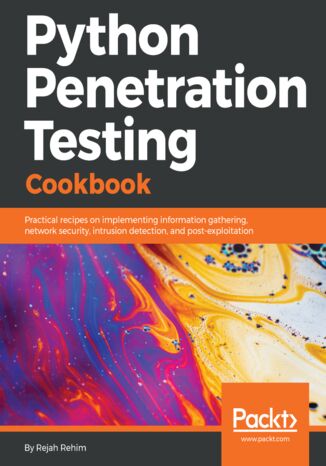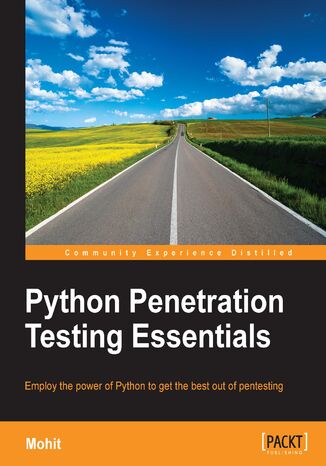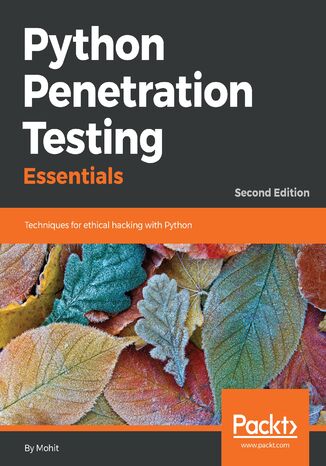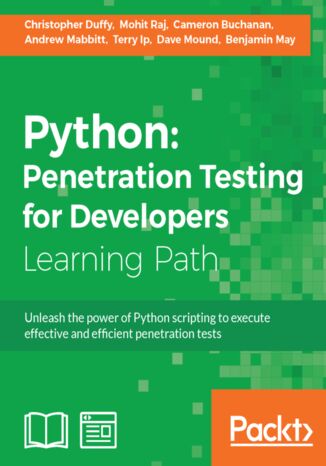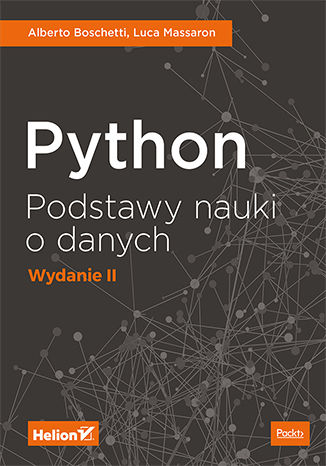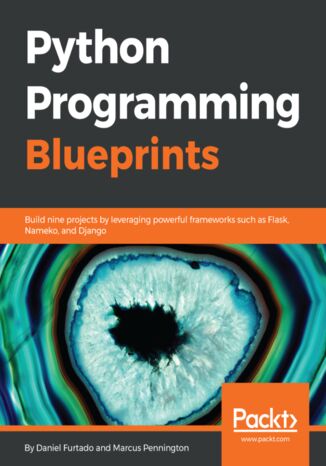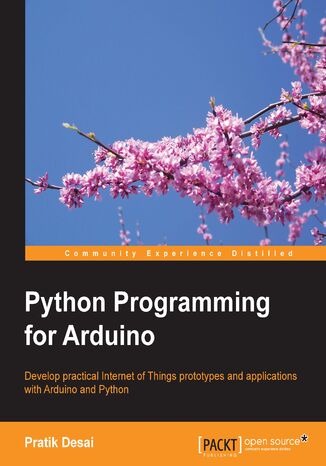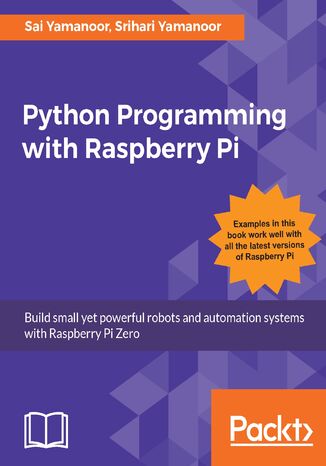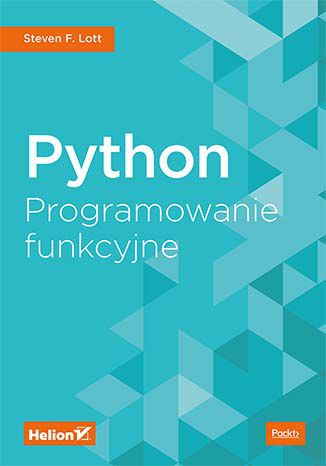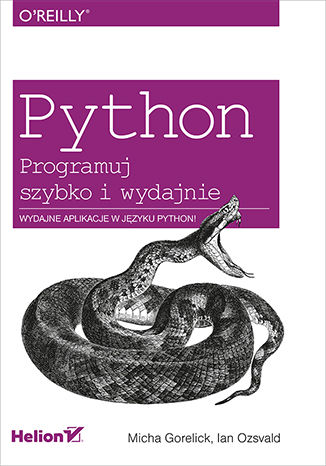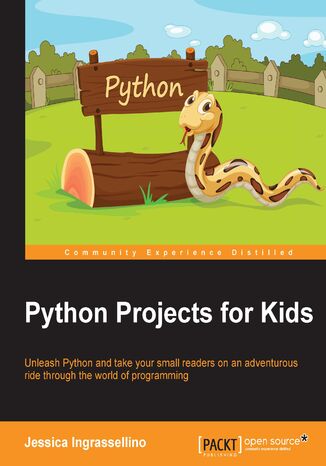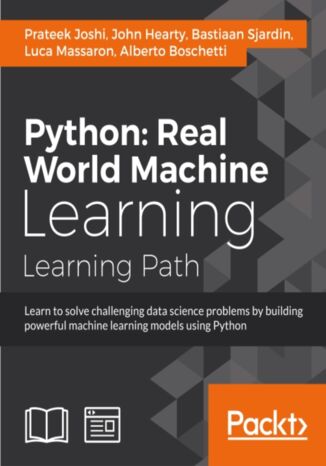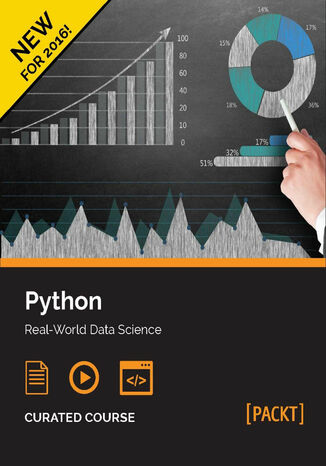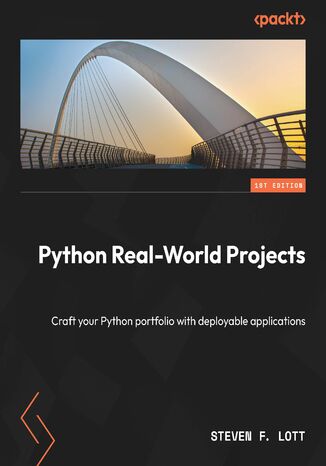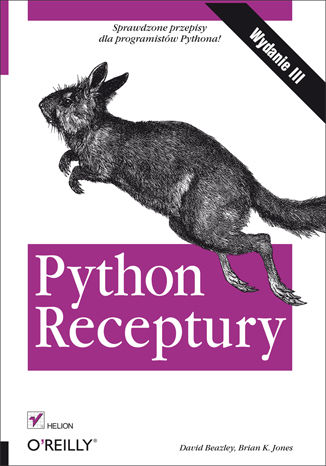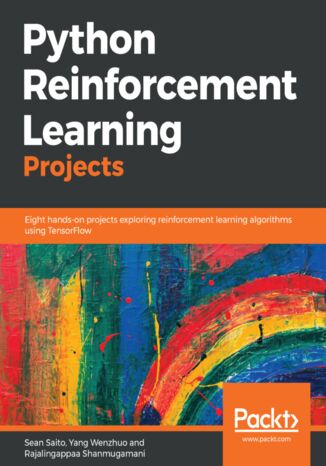Kategorien
E-Books
-
Wirtschaft
- Bitcoin
- Geschäftsfrau
- Coaching
- Controlling
- E-Business
- Ökonomie
- Finanzen
- Börse und Investitionen
- Persönliche Kompetenzen
- Computer im Büro
- Kommunikation und Verhandlungen
- Kleines Unternehmen
- Marketing
- Motivation
- Multimedia-Training
- Immobilien
- Überzeugung und NLP
- Steuern
- Sozialpolitik
- Handbȕcher
- Präsentationen
- Führung
- Public Relation
- Berichte, Analysen
- Geheimnis
- Social Media
- Verkauf
- Start-up
- Ihre Karriere
- Management
- Projektmanagement
- Personal (HR)
-
Für Kinder
-
Für Jugendliche
-
Bildung
-
Enzyklopädien, Wörterbücher
-
E-Presse
- Architektura i wnętrza
- Sicherheit und Gesundheit am Arbeitsplatz
- Biznes i Ekonomia
- Haus und Garten
- E-Business
- Ekonomia i finanse
- Esoterik
- Finanzen
- Persönliche Finanzen
- Unternehmen
- Fotografie
- Informatik
- HR und Gehaltsabrechnung
- Frauen
- Computer, Excel
- Buchhaltung
- Kultur und Literatur
- Wissenschaftlich und akademisch
- Umweltschutz
- meinungsbildend
- Bildung
- Steuern
- Reisen
- Psychologie
- Religion
- Landwirtschaft
- Buch- und Pressemarkt
- Transport und Spedition
- Gesundheit und Schönheit
-
Geschichte
-
Informatik
- Office-Programme
- Datenbank
- Bioinformatik
- IT Branche
- CAD/CAM
- Digital Lifestyle
- DTP
- Elektronik
- Digitale Fotografie
- Computergrafik
- Spiele
- Hacking
- Hardware
- IT w ekonomii
- Wissenschaftliche Pakete
- Schulbücher
- Computergrundlagen
- Programmierung
- Mobile-Programmierung
- Internet-Server
- Computernetzwerke
- Start-up
- Betriebssysteme
- Künstliche Inteligenz
- Technik für Kinder
- Webmaster
-
Andere
-
Fremdsprachen lernen
-
Kultur und Kunst
-
Lektüre
-
Literatur
- Anthologien
- Ballade
- Biografien und Autobiografien
- Für Erwachsene
- Drama
- Tagebücher, Memoiren, Briefe
- Epos
- Essay
- Science Fiction
- Felietonys
- Fiktion
- Humor, Satire
- Andere
- Klassisch
- Krimi
- Sachbücher
- Belletristik
- Mity i legendy
- Nobelpreisträger
- Kurzgeschichten
- Gesellschaftlich
- Okultyzm i magia
- Erzählung
- Erinnerungen
- Reisen
- Gedicht
- Poesie
- Politik
- Populärwissenschaftlich
- Roman
- Historischer Roman
- Prosa
- Abenteuer
- Journalismus
- Reportage
- Romans i literatura obyczajowa
- Sensation
- Thriller, Horror
- Interviews und Erinnerungen
-
Naturwissenschaften
-
Sozialwissenschaften
-
Schulbücher
-
Populärwissenschaft und akademisch
- Archäologie
- Bibliotekoznawstwo
- Filmwissenschaft
- Philologie
- Polnische Philologie
- Philosophie
- Finanse i bankowość
- Erdkunde
- Wirtschaft
- Handel. Weltwirtschaft
- Geschichte und Archäologie
- Kunst- und Architekturgeschichte
- Kulturwissenschaft
- Linguistik
- Literaturwissenschaft
- Logistik
- Mathematik
- Medizin
- Geisteswissenschaften
- Pädagogik
- Lehrmittel
- Populärwissenschaftlich
- Andere
- Psychologie
- Soziologie
- Theatrologie
- Teologie
- Theorien und Wirtschaftswissenschaften
- Transport i spedycja
- Sportunterricht
- Zarządzanie i marketing
-
Handbȕcher
-
Spielanleitungen
-
Professioneller und fachkundige Leitfaden
-
Jura
- Sicherheit und Gesundheit am Arbeitsplatz
- Geschichte
- Verkehrsregeln. Führerschein
- Rechtswissenschaften
- Gesundheitswesen
- Allgemeines. Wissenskompendium
- akademische Bücher
- Andere
- Bau- und Wohnungsrecht
- Zivilrecht
- Finanzrecht
- Wirtschaftsrecht
- Wirtschafts- und Handelsrecht
- Strafrecht
- Strafrecht. Kriminelle Taten. Kriminologie
- Internationales Recht
- Internationales und ausländisches Recht
- Gesundheitsschutzgesetz
- Bildungsrecht
- Steuerrecht
- Arbeits- und Sozialversicherungsrecht
- Öffentliches, Verfassungs- und Verwaltungsrecht
- Familien- und Vormundschaftsrecht
- Agrarrecht
- Sozialrecht, Arbeitsrecht
- EU-Recht
- Industrie
- Agrar- und Umweltschutz
- Wörterbücher und Enzyklopädien
- Öffentliche Auftragsvergabe
- Management
-
Führer und Reisen
- Afrika
- Alben
- Südamerika
- Mittel- und Nordamerika
- Australien, Neuseeland, Ozeanien
- Österreich
- Asien
- Balkan
- Naher Osten
- Bulgarien
- China
- Kroatien
- Tschechische Republik
- Dänemark
- Ägypten
- Estland
- Europa
- Frankreich
- Berge
- Griechenland
- Spanien
- Niederlande
- Island
- Litauen
- Lettland
- Mapy, Plany miast, Atlasy
- Miniführer
- Deutschland
- Norwegen
- Aktive Reisen
- Polen
- Portugal
- Andere
- Przewodniki po hotelach i restauracjach
- Russland
- Rumänien
- Slowakei
- Slowenien
- Schweiz
- Schweden
- Welt
- Türkei
- Ukraine
- Ungarn
- Großbritannien
- Italien
-
Psychologie
- Lebensphilosophien
- Kompetencje psychospołeczne
- zwischenmenschliche Kommunikation
- Mindfulness
- Allgemeines
- Überzeugung und NLP
- Akademische Psychologie
- Psychologie von Seele und Geist
- Arbeitspsychologie
- Relacje i związki
- Elternschafts- und Kinderpsychologie
- Problemlösung
- Intellektuelle Entwicklung
- Geheimnis
- Sexualität
- Verführung
- Aussehen ind Image
- Lebensphilosophien
-
Religion
-
Sport, Fitness, Diäten
-
Technik und Mechanik
Hörbücher
-
Wirtschaft
- Bitcoin
- Geschäftsfrau
- Coaching
- Controlling
- E-Business
- Ökonomie
- Finanzen
- Börse und Investitionen
- Persönliche Kompetenzen
- Kommunikation und Verhandlungen
- Kleines Unternehmen
- Marketing
- Motivation
- Immobilien
- Überzeugung und NLP
- Steuern
- Sozialpolitik
- Handbȕcher
- Präsentationen
- Führung
- Public Relation
- Geheimnis
- Social Media
- Verkauf
- Start-up
- Ihre Karriere
- Management
- Projektmanagement
- Personal (HR)
-
Für Kinder
-
Für Jugendliche
-
Bildung
-
Enzyklopädien, Wörterbücher
-
E-Presse
-
Geschichte
-
Informatik
-
Andere
-
Fremdsprachen lernen
-
Kultur und Kunst
-
Lektüre
-
Literatur
- Anthologien
- Ballade
- Biografien und Autobiografien
- Für Erwachsene
- Drama
- Tagebücher, Memoiren, Briefe
- Epos
- Essay
- Science Fiction
- Felietonys
- Fiktion
- Humor, Satire
- Andere
- Klassisch
- Krimi
- Sachbücher
- Belletristik
- Mity i legendy
- Nobelpreisträger
- Kurzgeschichten
- Gesellschaftlich
- Okultyzm i magia
- Erzählung
- Erinnerungen
- Reisen
- Poesie
- Politik
- Populärwissenschaftlich
- Roman
- Historischer Roman
- Prosa
- Abenteuer
- Journalismus
- Reportage
- Romans i literatura obyczajowa
- Sensation
- Thriller, Horror
- Interviews und Erinnerungen
-
Naturwissenschaften
-
Sozialwissenschaften
-
Populärwissenschaft und akademisch
- Archäologie
- Philosophie
- Wirtschaft
- Handel. Weltwirtschaft
- Geschichte und Archäologie
- Kunst- und Architekturgeschichte
- Kulturwissenschaft
- Literaturwissenschaft
- Mathematik
- Medizin
- Geisteswissenschaften
- Pädagogik
- Lehrmittel
- Populärwissenschaftlich
- Andere
- Psychologie
- Soziologie
- Teologie
- Zarządzanie i marketing
-
Handbȕcher
-
Professioneller und fachkundige Leitfaden
-
Jura
-
Führer und Reisen
-
Psychologie
- Lebensphilosophien
- zwischenmenschliche Kommunikation
- Mindfulness
- Allgemeines
- Überzeugung und NLP
- Akademische Psychologie
- Psychologie von Seele und Geist
- Arbeitspsychologie
- Relacje i związki
- Elternschafts- und Kinderpsychologie
- Problemlösung
- Intellektuelle Entwicklung
- Geheimnis
- Sexualität
- Verführung
- Aussehen ind Image
- Lebensphilosophien
-
Religion
-
Sport, Fitness, Diäten
-
Technik und Mechanik
Videokurse
-
Datenbank
-
Big Data
-
Biznes, ekonomia i marketing
-
Cybersicherheit
-
Data Science
-
DevOps
-
Für Kinder
-
Elektronik
-
Grafik / Video / CAX
-
Spiele
-
Microsoft Office
-
Entwicklungstools
-
Programmierung
-
Persönliche Entwicklung
-
Computernetzwerke
-
Betriebssysteme
-
Softwaretest
-
Mobile Geräte
-
UX/UI
-
Web development
-
Management
Podcasts
Penetration testing is the use of tools and code to attack a system in order to assess its vulnerabilities to external threats. Python allows pen testers to create their own tools. Since Python is a highly valued pen-testing language, there are many native libraries and Python bindings available specifically for pen-testing tasks.Python Penetration Testing Cookbook begins by teaching you how to extract information from web pages. You will learn how to build an intrusion detection system using network sniffing techniques. Next, you will find out how to scan your networks to ensure performance and quality, and how to carry out wireless pen testing on your network to avoid cyber attacks. After that, we’ll discuss the different kinds of network attack. Next, you’ll get to grips with designing your own torrent detection program. We’ll take you through common vulnerability scenarios and then cover buffer overflow exploitation so you can detect insecure coding. Finally, you’ll master PE code injection methods to safeguard your network.
Python Penetration Testing Essentials. Techniques for ethical hacking with Python - Second Edition
This book gives you the skills you need to use Python for penetration testing (pentesting), with the help of detailed code examples. We start by exploring the basics of networking with Python and then proceed to network hacking. Then, you will delve into exploring Python libraries to perform various types of pentesting and ethical hacking techniques. Next, we delve into hacking the application layer, where we start by gathering information from a website. We then move on to concepts related to website hacking—such as parameter tampering, DDoS, XSS, and SQL injection.By reading this book, you will learn different techniques and methodologies that will familiarize you with Python pentesting techniques, how to protect yourself, and how to create automated programs to find the admin console, SQL injection, and XSS attacks.
Christopher Duffy, Mohit Raj, Cameron Buchanan, Andrew Mabbitt, ...
Cybercriminals are always one step ahead, when it comes to tools and techniques. This means you need to use the same tools and adopt the same mindset to properly secure your software. This course shows you how to do just that, demonstrating how effective Python can be for powerful pentesting that keeps your software safe. Comprising of three key modules, follow each one to push your Python and security skills to the next level.In the first module, we’ll show you how to get to grips with the fundamentals. This means you’ll quickly find out how to tackle some of the common challenges facing pentesters using custom Python tools designed specifically for your needs. You’ll also learn what tools to use and when, giving you complete confidence when deploying your pentester tools to combat any potential threat.In the next module you’ll begin hacking into the application layer. Covering everything from parameter tampering, DDoS, XXS and SQL injection, it will build on the knowledge and skills you learned in the first module to make you an even more fluent security expert.Finally in the third module, you’ll find more than 60 Python pentesting recipes. We think this will soon become your trusted resource for any pentesting situation.This Learning Path combines some of the best that Packt has to offer in one complete, curated package. It includes content from the following Packt products:? Learning Penetration Testing with Python by Christopher Duffy? Python Penetration Testing Essentials by Mohit? Python Web Penetration Testing Cookbook by Cameron Buchanan,Terry Ip, Andrew Mabbitt, Benjamin May and Dave Mound
Python. Podstawy nauki o danych. Wydanie II
Alberto Boschetti, Luca Massaron
Nauka o danych jest nową, interdyscyplinarną dziedziną, funkcjonującą na pograniczu algebry liniowej, modelowania statystycznego, lingwistyki komputerowej, uczenia maszynowego oraz metod akumulacji danych. Jest przydatna między innymi dla analityków biznesowych, statystyków, architektów oprogramowania i osób zajmujących się sztuczną inteligencją. Szczególnie praktycznym narzędziem dla tych specjalistów jest język Python, który zapewnia doskonałe środowisko do analizy danych, uczenia maszynowego i algorytmicznego rozwiązywania problemów. Niniejsza książka jest doskonałym wprowadzeniem do nauki o danych. Jej autorzy wskażą Ci prostą i szybką drogę do rozwiązywania różnych problemów z tego obszaru za pomocą Pythona oraz powiązanych z nim pakietów do analizy danych i uczenia maszynowego. Dzięki lekturze przejdziesz przez kolejne etapy modyfikowania i wstępnego przetwarzania danych, poznając przy tym podstawowe operacje związane z wczytywaniem danych, przekształcaniem ich, poprawianiem na potrzeby analiz, eksplorowaniem i przetwarzaniem. Poza podstawami opanujesz też zagadnienia uczenia maszynowego, w tym uczenia głębokiego, techniki analizy grafów oraz wizualizacji danych. Najważniejsze zagadnienia przedstawione w książce: konfiguracja środowiska Jupyter Notebook najważniejsze operacje stosowane w nauce o danych potoki danych i uczenie maszynowe wprowadzenie do grafów i wizualizacje biblioteki i pakiety Pythona służące do badań danych Nauka o danych — fascynujące algorytmy i potężne grafy! Alberto Boschetti specjalizuje się w przetwarzaniu sygnałów i statystyce. Jest doktorem inżynierii telekomunikacyjnej. Zajmuje się przetwarzaniem języków naturalnych, analityką behawioralną, uczeniem maszynowym i przetwarzaniem rozproszonym. Luca Massaron specjalizuje się w statystycznych analizach wieloczynnikowych, uczeniu maszynowym, statystyce, eksploracji danych i algorytmice. Pasjonuje się potencjałem, jaki drzemie w nauce o danych.
Daniel Furtado, Marcus Pennington
Python is a very powerful, high-level, object-oriented programming language. It's known for its simplicity and huge community support. Python Programming Blueprints will help you build useful, real-world applications using Python.In this book, we will cover some of the most common tasks that Python developers face on a daily basis, including performance optimization and making web applications more secure. We will familiarize ourselves with the associated software stack and master asynchronous features in Python. We will build a weather application using command-line parsing. We will then move on to create a Spotify remote control where we'll use OAuth and the Spotify Web API. The next project will cover reactive extensions by teaching you how to cast votes on Twitter the Python way. We will also focus on web development by using the famous Django framework to create an online game store. We will then create a web-based messenger using the new Nameko microservice framework. We will cover topics like authenticating users and, storing messages in Redis.By the end of the book, you will have gained hands-on experience in coding with Python.
Sai Yamanoor, Srihari Yamanoor
Raspberry Pi Zero is a super-small and super-affordable product from Raspberry Pi that is packed with a plethora of features and has grabbed the notice of programmers, especially those who use Python. This step-by-step guide will get you developing practical applications in Python using a Raspberry Pi Zero. It will become a valuable resource as you learn the essential details of interfacing sensors and actuators to a Raspberry Pi, as well as acquiring and displaying data. You will get started by writing a Python program that blinks an LED at 1-second intervals. Then you will learn to write simple logic to execute tasks based upon sensor data (for example, to control a motor) and retrieve data from the web (such as to check e-mails to provide a visual alert). Finally, you will learn to build a home automation system with Python where different appliances are controlled using the Raspberry Pi. The examples discussed in each chapter of this book culminate in a project that help improve the quality of people’s lives.
Python. Programowanie funkcyjne
Zgodnie z paradygmatem programowania funkcyjnego największy nacisk należy kłaść na stałe i funkcje. Polega to na konstruowaniu funkcji oraz na obliczaniu wartości wyrażeń. W ten sposób otrzymuje się kod odporny na błędy. Python nie jest w pełni funkcyjnym językiem programowania, jednak pozwala na taki sposób pisania programów. Dzięki temu umożliwia tworzenie zwięzłego i eleganckiego kodu. Na przykład stosowanie wyrażeń generatorowych w Pythonie sprawia, że tworzone programy działają szybciej, ponieważ zużywają mniej zasobów. Niezależnie więc od stosowanego paradygmatu warto zapożyczyć pewne elementy programowania funkcyjnego i wykorzystać je do tworzenia ekspresyjnych i zwięzłych aplikacji w Pythonie. To znakomity podręcznik dla programistów, którzy chcą wykorzystać techniki i wzorce projektowe z funkcyjnych języków programowania, aby tworzyć w Pythonie zwięzłe, eleganckie i ekspresyjne programy - z czytelnym i łatwym w utrzymaniu kodem. Zawiera ogólny przegląd koncepcji funkcyjnych oraz wyjaśnia tak istotne pojęcia jak funkcje pierwszej klasy, funkcje wyższego rzędu, funkcje czyste, leniwe wartościowanie i wiele innych. Wnikliwie omawia sposób korzystania z tych funkcji w Pythonie 3.6, a także techniki przygotowywania i eksploracji danych. Ponadto pokazuje, w jaki sposób standardowa biblioteka Pythona pasuje do funkcyjnego modelu programowania. Co ważne, w książce znalazło się kilka przykładów prezentujących w praktyce opisane koncepcje. W książce między innymi: podstawy modelu programowania funkcyjnego działania na kolekcjach danych i przetwarzanie krotek projektowanie dekoratorów biblioteka PyMonad usługi sieciowe a programowanie funkcyjne Python: kod funkcyjny i funkcjonalny!
Python. Programuj szybko i wydajnie
Wydajne aplikacje w języku Python! Python to skryptowy język programowania istniejący na rynku od wielu lat — jego pierwsza wersja pojawiła się w 1991 roku. Przejrzystość kodu źródłowego była jednym z głównych celów Guida van Rossuma, twórcy tego języka. Dziś Python cieszy się dużą popularnością, co z jednej strony świadczy o jego przydatności, a z drugiej gwarantuje użytkownikom szerokie wsparcie społeczności programistów języka. Python jest elastyczny, dopuszcza różne style programowania, a dzięki temu znajduje zastosowanie w wielu miejscach świata IT. Jeżeli chcesz w pełni wykorzystać możliwości Pythona i tworzyć wydajne rozwiązania, to koniecznie zaopatrz się w tę książkę! Dzięki niej dowiesz się, jak wykorzystać profilowanie do lokalizowania „wąskich gardeł”, oraz poznasz efektywne techniki wyszukiwania danych na listach, w słownikach i zbiorach. Ponadto zdobędziesz wiedzę na temat obliczeń macierzowych i wektorowych oraz zobaczysz, jak kompilacja do postaci kodu C wpływa na wydajność Twojego rozwiązania. Osobne rozdziały zostały poświęcone współbieżności oraz modułowi multiprocessing. Opanowanie tych zagadnień pozwoli Ci ogromnie przyspieszyć działanie Twojej aplikacji. Na sam koniec nauczysz się tworzyć klastry i kolejki zadań oraz optymalizować zużycie pamięci RAM. Rozdział dwunasty to gratka dla wszystkich — zawiera najlepsze porady specjalistów z branży! Książka ta jest obowiązkową lekturą dla wszystkich programistów chcących tworzyć wydajne rozwiązania w języku Python. Poznaj lepiej narzędzia numpy i Cython, a także narzędzia profilujące Dowiedz się, jak w języku Python dokonywana jest abstrakcja bazowej architektury komputera. Użyj profilowania do znajdowania „wąskich gardeł” związanych z wykorzystaniem czasu procesora i pamięci. Utwórz wydajne programy, wybierając odpowiednie struktury danych. Przyspiesz obliczenia oparte na macierzach i wektorach. Zastosuj narzędzia do kompilacji kodu Python do postaci kodu maszynowego. Zarządzaj jednocześnie wieloma operacjami obliczeniowymi i operacjami wejścia-wyjścia. Przekształć kod przetwarzania współbieżnego w celu uruchomienia go w klastrze lokalnym lub zdalnym. Rozwiąż duże problemy, używając mniej pamięci RAM. Wyciśnij z Pythona siódme poty!
Kids are always the most fast-paced and enthusiastic learners, and are naturally willing to build stuff that looks like magic at the end (when it works!). Programming can be one such magic. Being able to write a program that works helps them feel they've really achieved something. Kids today are very tech-savvy and cannot wait to enter the fast-paced digital world.Because Python is one of the most popular languages and has a syntax that is quite simple to understand, even kids are eager to use it as a stepping stone to learning programming languages.This book will cover projects that are simple and fun, and teach kids how to write Python code that works.The book will teach the basics of Python programming, installation, and so on and then will move on to projects. A total of three projects, with each and every step explained carefully, without any assumption of previous experience.
Python: Real World Machine Learning. Take your Python Machine learning skills to the next level
Prateek Joshi, Luca Massaron, John Hearty, Alberto Boschetti, ...
Machine learning is increasingly spreading in the modern data-driven world. It is used extensively across many fields such as search engines, robotics, self-driving cars, and more. Machine learning is transforming the way we understand and interact with the world around us.In the first module, Python Machine Learning Cookbook, you will learn how to perform various machine learning tasks using a wide variety of machine learning algorithms to solve real-world problems and use Python to implement these algorithms.The second module, Advanced Machine Learning with Python, is designed to take you on a guided tour of the most relevant and powerful machine learning techniques and you’ll acquire a broad set of powerful skills in the area of feature selection and feature engineering.The third module in this learning path, Large Scale Machine Learning with Python, dives into scalable machine learning and the three forms of scalability. It covers the most effective machine learning techniques on a map reduce framework in Hadoop and Spark in Python.This Learning Path will teach you Python machine learning for the real world. The machine learning techniques covered in this Learning Path are at the forefront of commercial practice.This Learning Path combines some of the best that Packt has to offer in one complete, curated package. It includes content from the following Packt products:? Python Machine Learning Cookbook by Prateek Joshi? Advanced Machine Learning with Python by John Hearty? Large Scale Machine Learning with Python by Bastiaan Sjardin, Alberto Boschetti, Luca Massaron
Python: Real-World Data Science. Real-World Data Science
Fabrizio Romano, Dusty Phillips, Phuong Vo.T.H, Martin Czygan, ...
The Python: Real-World Data Science course will take you on a journey to become an efficient data science practitioner by thoroughly understanding the key concepts of Python. This learning path is divided into four modules and each module are a mini course in their own right, and as you complete each one, you’ll have gained key skills and be ready for the material in the next module. The course begins with getting your Python fundamentals nailed down. After getting familiar with Python core concepts, it’s time that you dive into the field of data science. In the second module, you'll learn how to perform data analysis using Python in a practical and example-driven way. The third module will teach you how to design and develop data mining applications using a variety of datasets, starting with basic classification and affinity analysis to more complex data types including text, images, and graphs. Machine learning and predictive analytics have become the most important approaches to uncover data gold mines. In the final module, we'll discuss the necessary details regarding machine learning concepts, offering intuitive yet informative explanations on how machine learning algorithms work, how to use them, and most importantly, how to avoid the common pitfalls.
Python Real-World Projects. Craft your Python portfolio with deployable applications
In today's competitive job market, a project portfolio often outshines a traditional resume. Python Real-World Projects empowers you to get to grips with crucial Python concepts while building complete modules and applications. With two dozen meticulously designed projects to explore, this book will help you showcase your Python mastery and refine your skills. Tailored for beginners with a foundational understanding of class definitions, module creation, and Python's inherent data structures, this book is your gateway to programming excellence. You’ll learn how to harness the potential of the standard library and key external projects like JupyterLab, Pydantic, pytest, and requests. You’ll also gain experience with enterprise-oriented methodologies, including unit and acceptance testing, and an agile development approach. Additionally, you’ll dive into the software development lifecycle, starting with a minimum viable product and seamlessly expanding it to add innovative features. By the end of this book, you’ll be armed with a myriad of practical Python projects and all set to accelerate your career as a Python programmer.
Python. Receptury. Wydanie III
Python to język programowania z ponad 20-letnią historią. Opracowany na początku lat 90. ubiegłego wieku, błyskawicznie zdobył sympatię programistów. Jest używany zarówno do pisania przydatnych skryptów czy małych narzędzi, jak i do pracy nad dużymi projektami. Korzysta z automatycznego zarządzania pamięcią oraz pozwala na podejście obiektowe i funkcyjne do tworzonego programu. Wokół języka Python skupiona jest bardzo silna społeczność programistów. Ta książka to sprawdzone źródło informacji na temat Pythona i jego najczęstszych zastosowań. Należy ona do cenionej serii „Receptury”, w której znajdziesz najlepsze sposoby rozwiązywania problemów. Przekonaj się, jak wydajnie operować na strukturach danych, łańcuchach znaków, tekście i liczbach. Zobacz, jak korzystać z iteratorów i generatorów. Ponadto naucz się tworzyć własne klasy i funkcje oraz sprawdź, jak uzyskać dostęp do plików i sieci. Te i dziesiątki innych receptur opisano w tej książce. To obowiązkowa pozycja na półce każdego programisty pracującego z językiem Python. Dzięki tej książce: rozwiążesz w optymalny sposób najczęstsze problemy napiszesz program korzystający z puli wątków będziesz lepszym programistą Pythona! Najlepsze rozwiązania typowych problemów!
Sean Saito, Yang Wenzhuo, Rajalingappaa Shanmugamani
Reinforcement learning is one of the most exciting and rapidly growing fields in machine learning. This is due to the many novel algorithms developed and incredible results published in recent years.In this book, you will learn about the core concepts of RL including Q-learning, policy gradients, Monte Carlo processes, and several deep reinforcement learning algorithms. As you make your way through the book, you'll work on projects with datasets of various modalities including image, text, and video. You will gain experience in several domains, including gaming, image processing, and physical simulations. You'll explore technologies such as TensorFlow and OpenAI Gym to implement deep learning reinforcement learning algorithms that also predict stock prices, generate natural language, and even build other neural networks.By the end of this book, you will have hands-on experience with eight reinforcement learning projects, each addressing different topics and/or algorithms. We hope these practical exercises will provide you with better intuition and insight about the field of reinforcement learning and how to apply its algorithms to various problems in real life.

